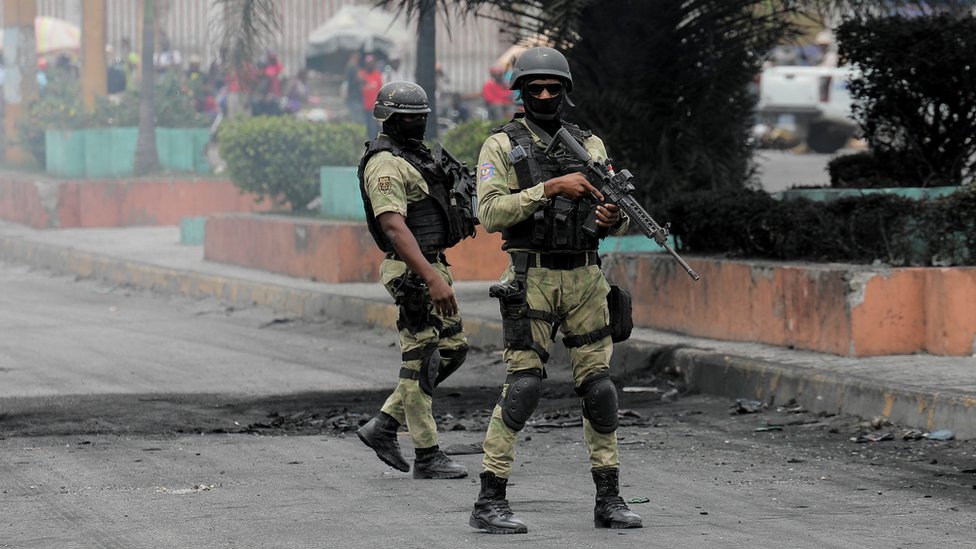Operations at Haiti’s primary fuel import terminal in Port-au-Prince were abruptly suspended on Monday as armed gangs seized trucks and demanded the port’s closure, exacerbating an already critical fuel shortage across the country. The blockade is expected to have severe repercussions on Haiti’s economy and public services, which are already struggling due to ongoing violence and instability.
According to a source with direct knowledge of the situation, gangs have blocked key roads leading to the Varreux terminal, one of Haiti’s most significant fuel import points. The United Nations World Food Programme warned that fuel shortages are becoming increasingly common in the capital, with long queues forming at gas stations. While the U.N. reports it currently has fuel reserves to support humanitarian efforts, the growing uncertainty poses significant challenges.
The gangs responsible for the blockade are part of the G9 alliance, led by Jimmy “Barbeque” Cherizier. This group previously blocked the Varreux terminal for nearly a month in October 2021 and again a year later, causing massive disruptions to Haiti’s economy and critical services. The previous blockades forced hospitals to close, halted radio programming, and severely limited public transportation due to a lack of fuel.
Cherizier, who has demanded the resignation of unelected Prime Minister Ariel Henry, has recently called for a broader “revolution” against Haiti’s political elites. Gang violence in the capital has increased since Henry announced his intention to resign on March 11, and a broader alliance of gangs, known as Viv Ansanm, has emerged.
On Monday, local media reported that Viv Ansanm gangs were engaged in violent clashes with police near the National Palace, where a transition council is expected to be sworn in to usher in a new government. Despite the United Nations approving an intervention requested by Henry in 2022, the situation remains unstable, and the U.N. estimates hundreds of thousands of Haitians are internally displaced due to escalating violence and millions are suffering from food insecurity.
As the crisis deepens, the international community watches closely to determine how to support Haiti in regaining stability and restoring essential services amid growing chaos.






